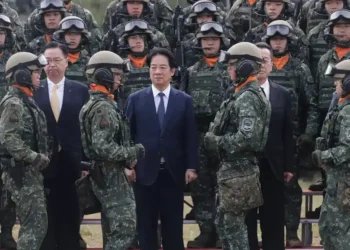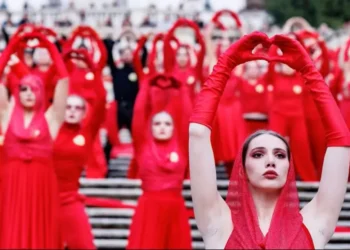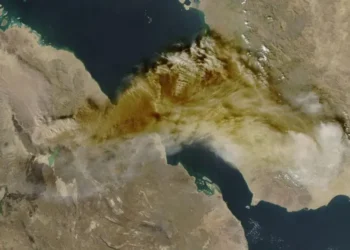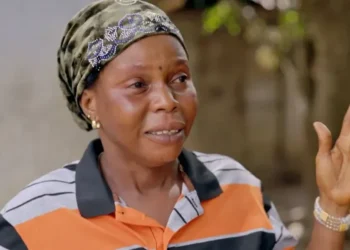WASHINGTON — President Donald Trump has granted full pardons to several of his closest allies, including former personal attorney Rudy Giuliani and ex–White House chief of staff Mark Meadows, in connection with efforts to overturn the results of the 2020 U.S. presidential election.
The “full, complete, and unconditional” pardons apply exclusively to federal offenses and cover dozens of Trump supporters named in a proclamation released late Sunday by the Office of the Pardon Attorney. None of the individuals had been charged with federal crimes related to the election, though many still face unresolved or stalled state-level cases.
The decision underscores Trump’s ongoing efforts to challenge the legitimacy of his 2020 loss to Democrat Joe Biden — a claim repeatedly dismissed by courts, election officials, and the U.S. Department of Justice, which found no evidence of widespread voter fraud.
Key Figures Included in the Pardon
Among those pardoned were lawyers Sidney Powell and John Eastman, both of whom advanced baseless theories of election fraud and participated in legal strategies seeking to delay or overturn Biden’s victory. Jeffrey Clark, a former senior Justice Department official who supported Trump’s attempts to pressure state officials, was also named.
The pardons extend to several Republican “fake electors” accused in state prosecutions of submitting falsified certificates claiming Trump had won battleground states including Georgia, Michigan, and Arizona.
While the pardons erase potential federal exposure, they do not apply to state-level prosecutions, which remain the jurisdiction of local authorities. However, many of those cases have faltered or been dismissed. A Michigan judge, for instance, dropped charges in September against 15 Republicans accused of falsely certifying Trump’s victory in that state.
White House Justifies Pardons as “National Reconciliation”
In a statement accompanying the proclamation, Trump described the prosecutions of his allies as “a grave national injustice perpetrated on the American people.” The White House said the pardons were part of an effort to advance “national reconciliation” and protect individuals who had “challenged an election, which is the cornerstone of democracy.”
“These great Americans were persecuted and put through hell by the Biden Administration for challenging an election,” said White House Press Secretary Karoline Leavitt in an email statement.
Legal experts, however, noted that none of the individuals pardoned had been prosecuted by the Biden administration. The cases were brought by state prosecutors, independent of the federal Department of Justice.
Federal Charges Against Trump Dropped After Election Victory
Trump himself had faced federal felony charges related to efforts to overturn his 2020 loss. That case, led by special counsel Jack Smith, was abandoned in November after Trump’s election victory over Democrat Kamala Harris due to the Justice Department’s long-standing policy against prosecuting sitting presidents.
Giuliani, Powell, Eastman, and Clark were cited as alleged co-conspirators in that federal case but were never formally charged with federal crimes.
Rudy Giuliani’s Fall from Influence
Giuliani, once celebrated as “America’s Mayor” for his leadership after the September 11 attacks, became a central figure in Trump’s post-2020 election campaign to challenge the results. He amplified discredited claims of widespread voter fraud and spearheaded lawsuits that failed in courts across multiple states.
He has since been disbarred in Washington, D.C., and New York for spreading false information about the election. In December, Giuliani was ordered to pay $148 million in damages to two former Georgia election workers defamed by his unfounded fraud allegations.
John Eastman and Jeffrey Clark Face Professional Sanctions
Eastman, a former dean of Chapman University’s law school, authored a controversial memo outlining a strategy for then–Vice President Mike Pence to block certification of Biden’s win during the January 6, 2021, joint session of Congress.
Clark, who clashed with Justice Department superiors in late 2020, drafted a letter falsely suggesting that the department had found “significant concerns” about the election in Georgia. Senior DOJ officials refused to send the letter. Clark, now serving in a federal regulatory position, is facing potential disbarment proceedings in Washington.
On Monday, Clark posted on social media that he “did nothing wrong” and had been “battling this witch hunt for 4+ years.”
Political and Legal Implications
The sweeping pardons reignite a national debate over presidential powers and accountability. Critics say the move undermines the rule of law, while supporters argue it corrects political overreach by state prosecutors.
By excluding himself from the pardon order, Trump avoided constitutional controversy but reaffirmed his long-standing narrative that he and his allies were unfairly targeted for defending electoral integrity.
While the pardons close the federal chapter of these legal battles, they may further polarize an already divided political landscape — especially as Trump prepares to begin a new term in office.
This article was rewritten by JournosNews.com based on verified reporting from trusted sources. The content has been independently reviewed, fact-checked, and edited for accuracy, neutrality, tone, and global readability in accordance with Google News and AdSense standards.
All opinions, quotes, or statements from contributors, experts, or sourced organizations do not necessarily reflect the views of JournosNews.com. JournosNews.com maintains full editorial independence from any external funders, sponsors, or organizations.
Stay informed with JournosNews.com — your trusted source for verified global reporting and in-depth analysis. Follow us on Google News, BlueSky, and X for real-time updates.














